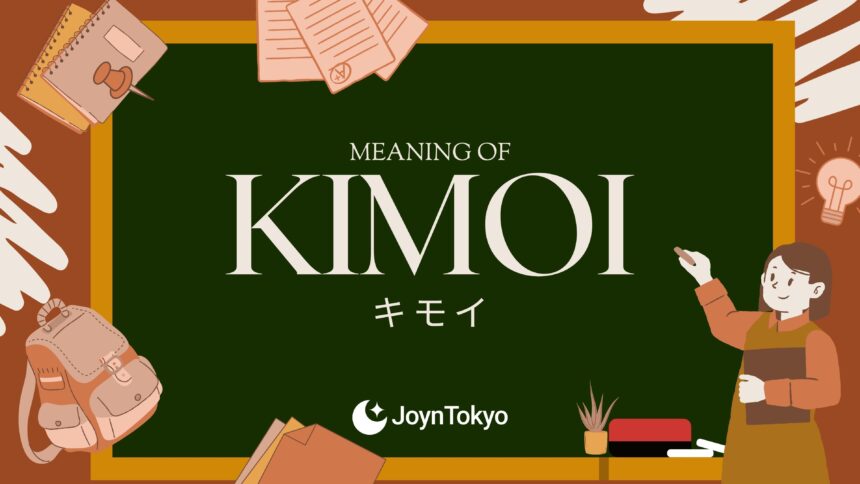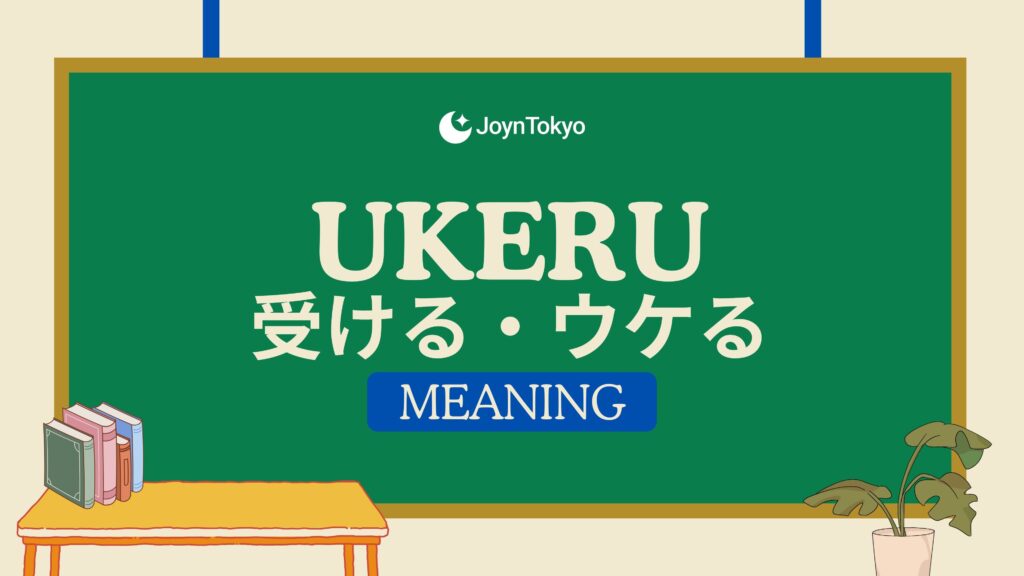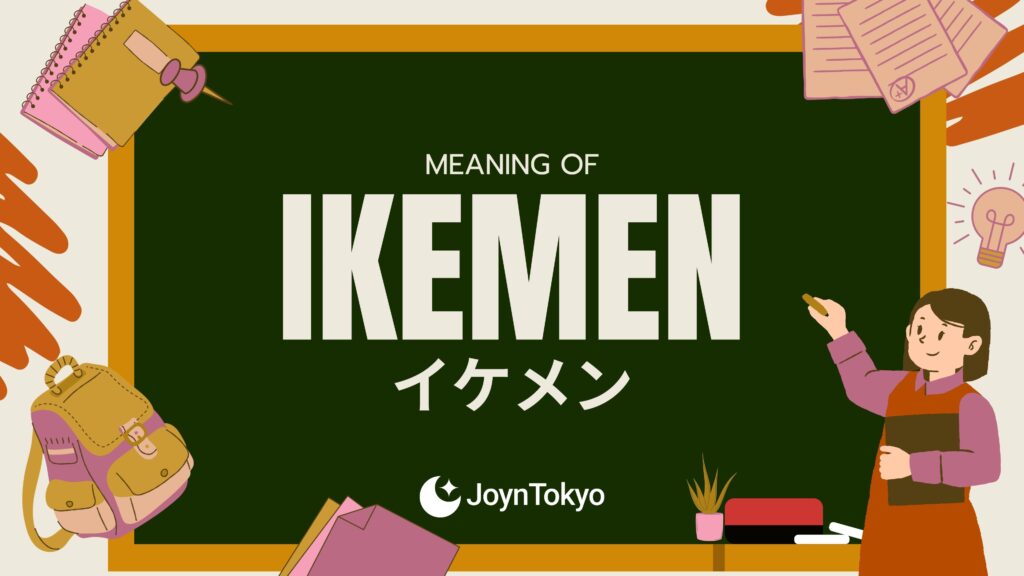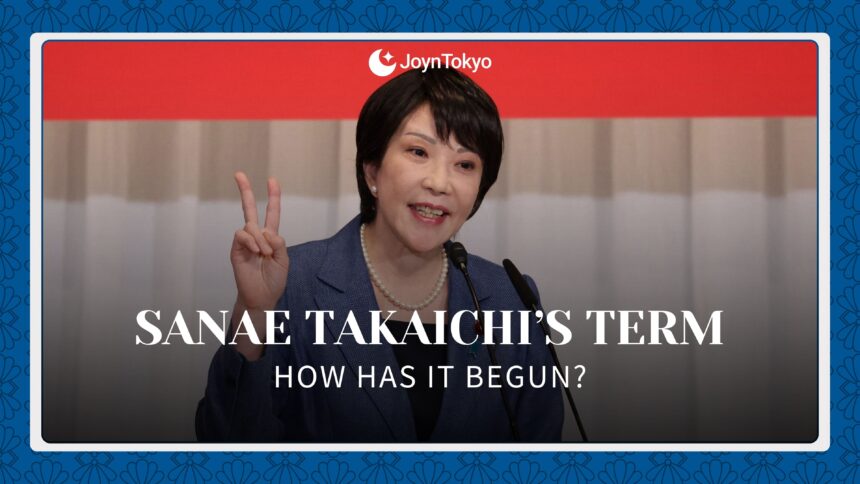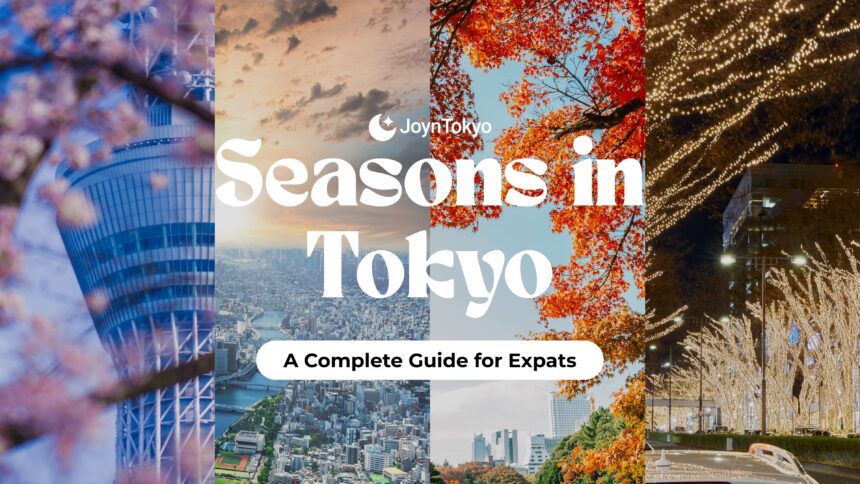If you’ve ever watched Japanese dramas, anime, or scrolled through Japanese social media, you may have heard someone say “kimoi,” usually with a wrinkled nose or an exaggerated shiver. It’s short, punchy, and full of emotion. But what exactly does kimoi mean in English, and why do Japanese people use it so often?
Let’s dig into the meaning, nuance, and everyday use of this popular slang word.
What Does Kimoi Mean in English?
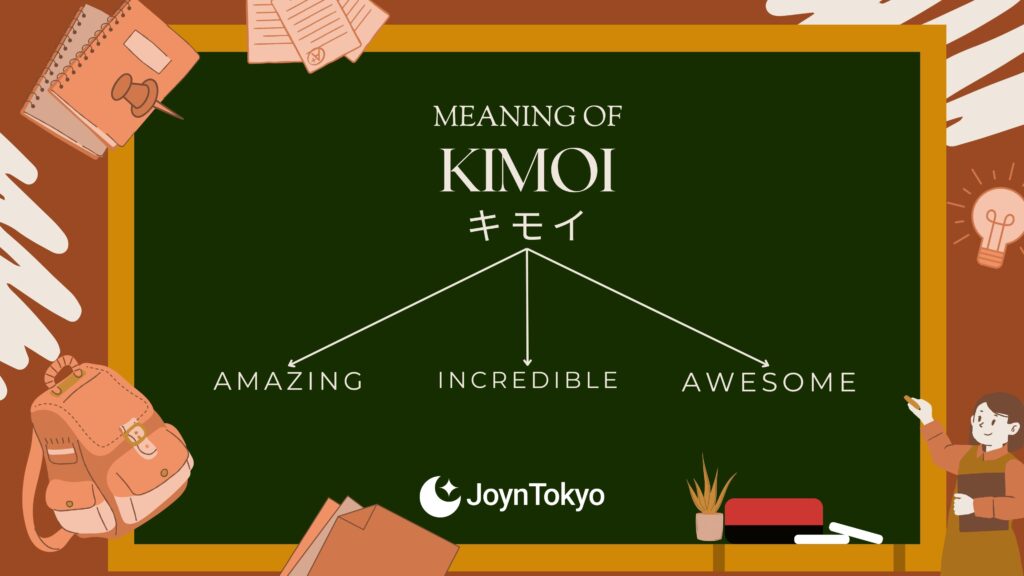
The word kimoi (キモい) is Japanese slang for “gross,” “creepy,” “weird,” or “disgusting.” It’s an emotional reaction to something unpleasant, strange, or unsettling, kind of like saying “ew” or “that’s creepy” in English.
Kimoi is actually a shortened form of “kimochi warui” (気持ち悪い), which literally means “bad feeling.” Over time, people started dropping the second part (warui) and saying just kimoi, especially in casual speech.
So when you hear someone say “kimoi,” it’s basically a quick way of saying something (or someone) gives them the creeps.
Here’s how it translates depending on the situation:
- When reacting to something gross: “Ew,” “Gross,” or “Disgusting.”
- When describing a creepy person: “Creepy,” “Weird,” or “Sketchy.”
- When teasing someone: “That’s kinda cringe,” or “You’re such a weirdo.”
The meaning changes with tone — a playful “kimoi” between friends can be teasing, while a sharp one can sound harsh or even insulting.
How Kimoi Is Used in Daily Conversation
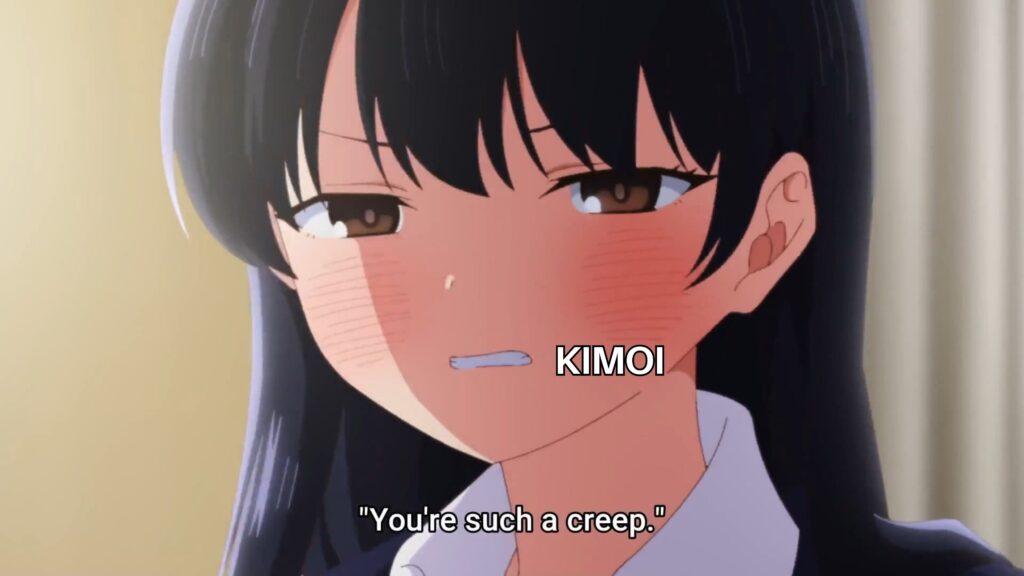
You’ll hear kimoi in all sorts of everyday situations, from joking with friends to reacting to something shocking online.
- Literal disgust: “Ugh, that bug is kimoi! ” (Gross!)
- Playful teasing: “You’re so into that anime character, you’re kinda kimoi.” (You’re being a bit obsessed — said jokingly.)
- Serious criticism: “That guy kept staring at me. So kimoi.” (He’s creepy.)
The beauty (and danger) of kimoi is how versatile it is. The same word can sound lighthearted or cutting, depending on who says it and how.
Kimoi in Japanese Pop Culture
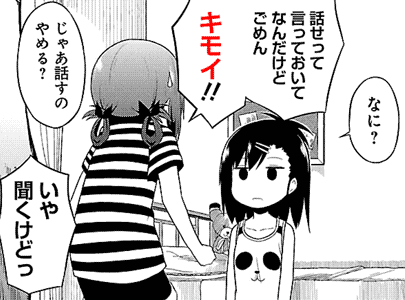
If you watch anime, YouTube, or Japanese variety shows, you’ll hear kimoi everywhere. It’s part of the country’s modern slang vocabulary — simple, expressive, and instantly understood.
Fans might shout “kimoi!” at a gross monster scene, while commenters online might type “kimoi wwww” (where “w” means “lol”) to laugh at something awkward or cringey. You’ll even see cute variations like “kimo~i” to exaggerate the reaction.
It’s an emotional shortcut: one word that captures disgust, shock, and humor all at once.
When to Avoid Saying Kimoi
Even though kimoi is common, it’s not always appropriate. It can come off as rude if said directly to someone you don’t know well. Telling a person “You’re kimoi” is basically calling them “creepy” or “gross” — which won’t go over well.
If you need a softer version, use “kimochi warui” instead. It means the same thing but sounds more polite and less slangy.
In formal settings or with older people, it’s better to avoid kimoi altogether.
Final Thoughts
So, what does kimoi mean in English? It’s one of Japan’s most expressive slang words — a quick, emotional way to say “gross,” “weird,” or “creepy.”
It comes from kimochi warui, and depending on your tone, it can be funny, teasing, or seriously insulting. You’ll hear it in anime, online chats, and everyday speech all across Japan.
Now that you know the real kimoi meaning in English, you’ll catch it instantly next time you hear it — and maybe even find yourself saying it too (just… be careful).

